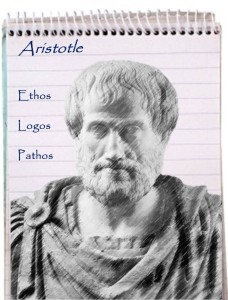 See what are the ideas of a couple of the most well-known Greek philosophers about it.
See what are the ideas of a couple of the most well-known Greek philosophers about it.
Aristotle distinguished between three types of soul in order to indicate the three different ways a body can be organized. He called these the vegetative, sensitive, and rational souls. They represent various capacities of a body for activity, the first being simply the act of living, the second both living and sensing, and the third a body that includes living, sensing, and thinking.
The human soul combines in itself all the lower forms of soul, the vegetative, nutritive, and sensitive, having in addition to these the rational soul. The rational soul has the power of scientific thought. the reason is capable not only of distinguishingbetween different kinds of things, which is the power of analysis, it is able also to understand the relationship
of things to each other. Besides scientific thought, the rational soul has the power of deliberation. Here the mind not only discovers what truth is in the nature of things, it discovers the guides for human behaviour.
 Again for Aristotle, the soul forms the entelechy, the definitive form of the body. Without the body, the soul should neither be nor exercise its functions. This is in sharp contrast to Plato‘s explanation of the body as the prison house of the soul. By contrast, Aristotle says that the body and soul together form one substances. Because he separated soul and body, Plato could speak of pre-existence of the soul. He could also describe knowledge or learning as the process of recollection of what the soul knew in its previous state. Moreover, Plato could also speak of the immortality of the individual soul. Aristotle, on the other hand, tied soul and body so closely together that with the death of the body, the soul, its organization principle, also perished. Also, for him the mind begins as a blank tablet.
Again for Aristotle, the soul forms the entelechy, the definitive form of the body. Without the body, the soul should neither be nor exercise its functions. This is in sharp contrast to Plato‘s explanation of the body as the prison house of the soul. By contrast, Aristotle says that the body and soul together form one substances. Because he separated soul and body, Plato could speak of pre-existence of the soul. He could also describe knowledge or learning as the process of recollection of what the soul knew in its previous state. Moreover, Plato could also speak of the immortality of the individual soul. Aristotle, on the other hand, tied soul and body so closely together that with the death of the body, the soul, its organization principle, also perished. Also, for him the mind begins as a blank tablet.